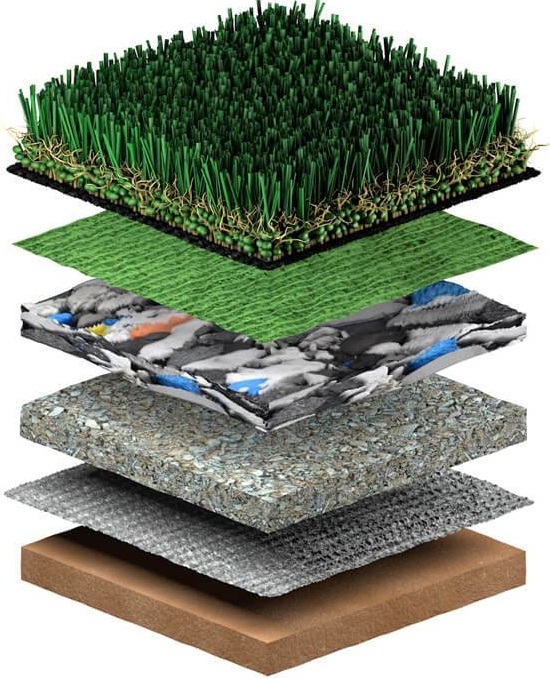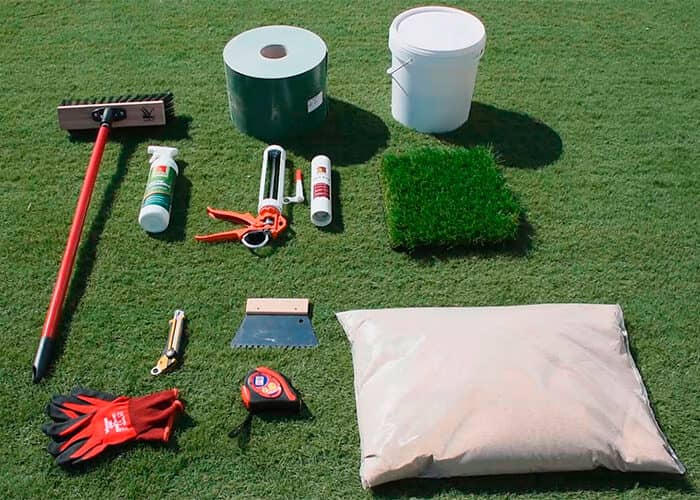Why Choose Artificial Grass Installation in Canoga Park for Your Lawn?
Why Choose Artificial Grass Installation in Canoga Park for Your Lawn?
Blog Article
Top Reasons to Think About Artificial Grass for a Lush and Low-Maintenance Backyard
As homeowners progressively seek sustainable services for exterior rooms, man-made grass presents an attractive choice to traditional lawns. The benefits extend beyond simple appearances and sustainability; discovering the multifaceted effects of fabricated grass discloses a detailed approach to backyard management that advantages deeper factor to consider.
Year-Round Plant
Among the most substantial advantages of artificial grass is its capacity to supply year-round plant, no matter climate conditions. Property owners usually face obstacles in keeping a lively grass as a result of seasonal modifications, dry spells, or hefty rainfall. Man-made lawn eliminates these worries, making sure a consistently lavish appearance throughout the year.
This synthetic option is engineered to hold up against varied weather scenarios, from burning summer season warmth to freezing winter season temperatures. Unlike natural grass, which might brown or end up being patchy during severe conditions, synthetic lawn keeps its dynamic color and appearance, enhancing the aesthetic allure of any type of landscape.
Additionally, man-made turf is immune to parasites and diseases that normally affect natural lawns. This resilience adds to its enduring beauty, as there is no need for chemical treatments or fertilizers that can be hazardous to the environment. Property owners can take pleasure in the visual benefits of a properly maintained yard without the cyclical challenges presented by all-natural turf treatment.
Decreased Maintenance Efforts
Synthetic lawn substantially decreases upkeep efforts, enabling homeowners to delight in an excellent grass without the time-consuming tasks related to natural grass treatment. One of one of the most notable advantages of synthetic turf is the elimination of routine mowing. Without demand for a lawnmower, house owners save both time and the price of maintenance related to this devices.

Cleaning up fabricated yard is uncomplicated; a basic rinse with a pipe or the periodic cleaning to get rid of particles is usually enough - artificial grass canoga park. This ease of treatment permits house owners to invest more time enjoying their outdoor rooms rather than struggling over them. In summary, the lowered maintenance initiatives connected with man-made yard make it an appealing option for those looking for an attractive, hassle-free yard
Water Conservation Conveniences
The considerable decrease in upkeep initiatives connected with artificial grass encompasses water preservation, making it an eco-friendly option for house owners. Conventional grass need significant quantities of water to continue to be vibrant and lavish, usually leading to excessive water usage, specifically in arid areas. On the other hand, fabricated yard eliminates the need for normal watering, significantly minimizing the general water consumption in your backyard.
By choosing for artificial grass, more house owners can preserve thousands of gallons of water every year. This shift not only advantages individual houses yet likewise adds to broader environmental campaigns targeted at reducing water waste. In locations experiencing water scarcity, the fostering of artificial grass can play a considerable function in mitigating the results of dry spell and making sure that important water resources are used extra successfully.
In addition, the installation of synthetic grass can help lower metropolitan water need, benefiting the community all at once. With expanding recognition of environmental issues, selecting synthetic grass functions as a positive step towards lasting landscaping, aiding to maintain all-natural water sources while preserving a cosmetically pleasing outdoor room (backyard artificial grass). In summary, man-made grass offers a compelling option for water conservation, lining up environmental responsibility with modern-day landscaping demands

Pest and Allergic Reaction Reduction
A considerable benefit of setting up artificial grass is its capability to minimize parasites and allergens in outdoor find out here now spaces. Standard yard yards typically offer as reproducing grounds for pests such as mosquitoes, ticks, and ants, which can develop pain and health dangers for family members and pet dogs. In contrast, artificial yard removes the natural material that attracts these parasites, thereby dramatically decreasing their populations in your backyard.
Additionally, all-natural yard can nurture mold and mildew, pollen, and various other allergens, which can set off allergies and respiratory system concerns for sensitive individuals. Synthetic turf offers a cleaner setting, minimizing the capacity for allergenic responses. Unlike all-natural grass, artificial grass does not generate plant pollen, making it an excellent choice for allergic reaction patients looking for to appreciate their outdoor areas without the threat of flare-ups.
In addition, the lack of soil in synthetic grass indicates there is less dirt and dust, more minimizing airborne allergens. This low-maintenance alternative not just improves the visual allure of your lawn but also advertises a much healthier exterior atmosphere, permitting households to enjoy their yards without the continuous worry of bugs and irritants. Hence, fabricated grass is a calculated option for those focusing on comfort and wellness in their exterior home.
Long-Term Cost Cost Savings
Purchasing artificial lawn can bring about significant long-term cost financial savings for home owners. While the initial financial investment may seem substantial, the economic benefits over time can be substantial. Synthetic turf gets rid of the need for regular Clicking Here yard upkeep expenditures, such as mowing, fertilizing, and watering. Conventional lawns commonly require considerable resources to maintain a lavish appearance, particularly in locations vulnerable to drought or extreme weather conditions.
Moreover, the durability of artificial grass additionally enhances its cost-effectiveness. Most high-grade fabricated yard products can last 15 to 25 years with minimal maintenance, decreasing the demand for substitute or extensive repair work. In comparison, natural grass might call for constant reseeding and regular treatment, which can swiftly accumulate in costs.
Energy savings are one more important aspect. Homeowners can expect to see lower water costs, as artificial turf does not require irrigation. Additionally, the decrease in grass care services can liberate important time and resources, enabling home owners to allocate their budgets in other places.
Final Thought
In summary, artificial yard presents numerous advantages for home owners seeking a lively and low-maintenance landscape. Its capability to supply year-round greenery, paired with lowered upkeep efforts and substantial water preservation, makes it an attractive option. Furthermore, the decrease of allergens and bugs adds to a much healthier exterior setting. Ultimately, the long-lasting expense financial savings connected with synthetic grass strengthen its status as a functional and sustainable solution for enhancing exterior rooms.
Synthetic turf dramatically decreases maintenance initiatives, enabling house owners to delight in an immaculate yard without the time-consuming jobs associated with natural turf treatment.The considerable decrease in upkeep efforts associated with man-made lawn expands to water preservation, making it an eco friendly option for house owners. In contrast, artificial lawn gets rid of the demand for regular watering, dramatically minimizing the general water consumption in your yard.
In areas experiencing water scarcity, the adoption of synthetic turf can play a substantial function in minimizing the results of drought and making sure that valuable water sources are used much more successfully.
With expanding awareness of ecological problems, selecting artificial yard serves as an aggressive action in the direction of sustainable landscape design, aiding to preserve all-natural water sources while keeping an aesthetically pleasing outside room.
Report this page